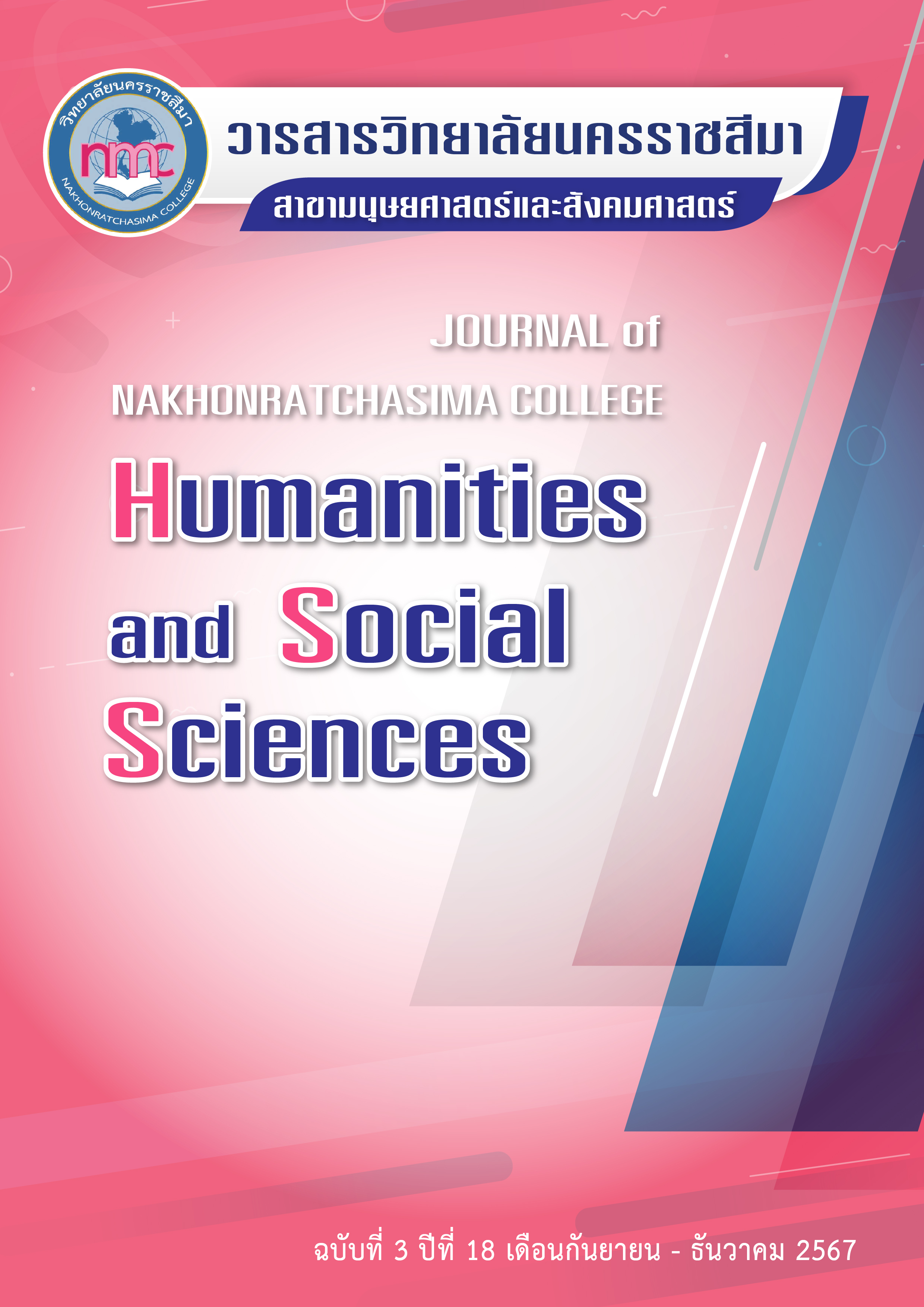การเรียนรู้ด้วยตนเอง
คำสำคัญ:
การเรียนรู้ด้วยตนเอง, การเรียนรู้แบบควบคุมตนเอง, การเรียนรู้ด้วยตนเองเพื่อการเรียนรู้ตลอดชีวิตบทคัดย่อ
ในยุคปัจจุบัน การเรียนรู้ไม่ได้จำกัดอยู่เพียงในห้องเรียนอีกต่อไป การเรียนรู้ด้วยตนเอง (Self-Directed Learning: SDL) ได้รับความสนใจมากขึ้น เนื่องจากเป็นทักษะที่ช่วยพัฒนาตนเองให้มีความรู้และความสามารถที่ทันสมัยภายใต้การเปลี่ยนแปลงทางสังคม เศรษฐกิจ การเมือง และวัฒนธรรม การแสวงหาความรู้ด้วยตนเองจึงกลายเป็นสิ่งสำคัญในการปรับตัวให้เหมาะสมกับโลกาภิวัตน์
นักการศึกษามีแนวคิดพื้นฐานที่เชื่อว่ามนุษย์ทุกคนมีศักยภาพในการพัฒนาได้ด้วยตนเองอย่างต่อเนื่อง การเรียนรู้จึงไม่จำเป็นต้องเชื่อมโยงกับโรงเรียนเพียงอย่างเดียว แต่บุคคลสามารถเรียนรู้ได้จากประสบการณ์ สภาพแวดล้อมต่างๆ และความหลากหลายที่ตอบสนองตามความต้องการเฉพาะของแต่ละบุคคล
การเรียนรู้ด้วยตนเอง (Self-Directed Learning: SDL) จึงเป็นกระบวนการที่บุคคลสามารถกำหนดวัตถุประสงค์การเรียนรู้ วางแผนและควบคุมกระบวนการเรียนรู้ และประเมินผลการเรียนรู้ของตนเองได้โดยไม่ต้องพึ่งพาครูหรือผู้สอน แนวคิดนี้เน้นถึงความสามารถของบุคคลในการจัดการและควบคุมการเรียนรู้ของตนเอง ซึ่งสามารถเสริมสร้างความรู้และทักษะใหม่ ๆ ได้
เอกสารอ้างอิง
Ahammad, F. (2023). Self-directed learning: A core concept in adult education. The Online Journal of Distance Education and e-Learning, 11(3). 2952-2962.
Avsec, S., & Ferk Savec, V. (2022). Mapping the relationships between self-directed learning and design thinking in pre-service science and technology teachers. Sustainability, 14(14), 8626.
Ayyildiz, Y., & Tarhan, L. (2015). A study on high school students' self-efficacy beliefs in chemistry. Journal of Baltic Science Education, 14(3), 368–378.
Bhat, N., & Dahal, A. (2023). Self-directed learning, its implementation, and challenges: A review. Nepal Journal of Health Sciences, 3(1), 102-115.
Brockett, R. G., & Hiemstra, R. (2023). Self-direction in adult learning: Perspectives on theory, research, and practice. Routledge.
Charokar, A., & Dulloo, M. (2022). Effect of outcome-based education on students' academic performance. Education and Information Technologies, 27(5), 7593-7610.
Connie Malamed. (2016). Self-directed learning: Empowerment in the workplace. Retrieved from https://www.linkedin.com/pulse/self-directed-learning-empowerment-workplace-connie-malamed/
Du Toit-Brits, C. (2019). A focus on self-directed learning: The role that educators' expectations play in enhancing self-directed learning. South African Journal of Education, 39(2). 1-11. https://doi.org/10.15700/saje.v39n2a1645
Doyle, W. (2008). Evaluation of education systems and curriculum development: I mpacts and prospects. Journal of Curriculum Studies, 40(4), 401-425. https://doi.org/10.1080/00220270801989564
Doyle, T. (2023). Helping students learn in a learner-centered environment: A guide to facilitating learning in higher education. Taylor & Francis.
Din, N., Haron, S., & Rashid, R. M. (2016). Can Self-directed learning environment improve quality of life?. Procedia-Social and Behavioral Sciences, 222, 219-227.
Edly. (2024). How Can Self-Study Benefit Your Learners? . Retrieved May 31, 2567, from https://edly.io/blog/how-can-self-study-benefit-your-learners/
Edwards, N. (2015). An analysis of the characteristics of self-directed learners and strategies to enhance self-directed learning in education systems: Transcending boundaries. In The Asian Conference on Education 2015 Official Conference Proceedings.
Fang, Z., Wang, Z., & Zhan, W. (2016). Research on teaching evaluation system based on OBE concept. Educational Research and Reviews, 11(13), 1220-1227.
Guglielmino, L. M. (1977). Development of the self-directed learning readiness scale. Doctoral Dissertation. University of Georgia.
Hwang, G. J., & Oh, S. M. (2021). Recent advances in outcome-based education research in engineering an3d technology fields: a meta-analysis. IEEE Access, 9, 44650-44665.
Kalantzis, M. (2003). Multiliteracies, multimedia, and the new world of communication. Pedagogies: An International Journal, 1(1), 23-41.
Karimi, S. (2016). Do learners’ characteristics matter? An exploration of mobile-learning adoption in self-directed learning. Computers in Human Behavior, 63, 769-776.
Khalid, M., Bashir, S., & Amin, H. (2020). Relationship between Self-Directed Learning (SDL) and Academic Achievement of University Students: A Case of Online Distance Learning and Traditional Universities. Bulletin of Education and Research, 42(2), 131-148.
Knowles, M. S. (1975). Self-directed learning: A guide for learners and teachers. Association Press.
Kranzow, J., & Hyland, N. (2016). Self-directed learning: Developing readiness in graduate students. International Journal of Self-Directed Learning, 13(2), 1-14.
Loeng, S. (2020). Self-directed learning: A core concept in adult education. Education Research International, 2020(1), 3816132.
Nufus, H., Muhandaz, R., Nurdin, E., Ariawan, R., Fineldi, R. J., Hayati, I. R., & Situmorang, D. D. B. (2024). Analyzing the students’ mathematical creative thinking ability in terms of self-regulated learning: How do we find what we are looking for?.Heliyon,10(3).1-14.
O'Shea, E. (2003). Self-directed learning in nurse education: A review of the literature. Journal of Advanced Nursing, 43(1), 62-70.
Pintrich, P. R. (2000). The role of goal orientation in self-regulated learning. In M. Boekaerts,
P. R. Pintrich, & M. Zeidner (Eds.), Handbook of self-regulation. (pp. 451–502). Academic Press.
Rahman, M. L. (2017, August). Self Management on Self Directed Learning in Learning English Vocabulary. In International Conference on English Language Teaching (ICONELT 2017) (pp. 156-158). Atlantis Press.
Read, J. M. (2001). Developing self-directed learning. Research and practice in human resource management, 9(1), 119-37.
Robinson, J. D., & Persky, A. M. (2020). Developing self-directed learners. American journal of pharmaceutical education, 84(3), 847512.
Saks, K., & Leijen, Ä. (2014). Distinguishing self-directed and self-regulated learning and measuring them in the e-learning context. Procedia-Social and Behavioral Sciences, 112, 190-198.
Senyuva, E., & Kaya, H. (2014). The relationship between self-directed learning readiness and lifelong learning. Nurse Education Today, 34(6), 786-790.
Sitzmann, T., & Ely, K. (2011). A meta-analysis of self-regulated learning in work-related training and educational attainment: what we know and where we need to go. Psychological Bulletin, 137, 421-442.
Song, Y., Lee, Y., & Lee, J. (2022). Mediating effects of self-directed learning on the relationship between critical thinking and problem-solving in student nurses attending online classes: A cross-sectional descriptive study. Nurse education today, 109, 105227.
ŢÎMPĂU, C. (2015). Importance of self-directed learning. LOGOS, UNIVERSALITY, MENTALITY, EDUCATION, NOVELTY. Section Social Sciences, 4(1), 37-49.
Tough, A. (1971). The Adult's Learning Projects: A Fresh Approach to Theory and Practice in Adult Learning. Ontario Institute for Studies in Education.
Transcom. (2024). Why self-learning is important. Retrieved May 31, 2567, from https://transcom.com/why-self-learning-is-important/
University of Waterloo. (2024). Self-directed learning: A four-step process. Retrieved June 10, 2567, from https://uwaterloo.ca/centre-for-teaching- excellence/catalogs/tip-sheets/self-directed-learning-four-step-process
Zimmerman, B. J. (2013). From cognitive modeling to self-regulation: A social cognitive career path. Educational Psychologist, 48(3), 135-147.
ดาวน์โหลด
เผยแพร่แล้ว
รูปแบบการอ้างอิง
ฉบับ
ประเภทบทความ
สัญญาอนุญาต
จรรยาบรรณผู้เขียนบทความ
ผู้เขียนบทความต้องรับรองว่าบทความนี้ไม่เคยตีพิมพ์ในวารสารใดหรือสิ่งพิมพ์อื่นๆ มาก่อน ต้องไม่คัดลอกผลงานผู้อื่นมาปรับแต่งเป็นบทความของตน และไม่ได้อยู่ระหว่างการเสนอเพื่อพิจารณาตีพิมพ์ อีกทั้งยอมรับหลักเกณฑ์การพิจารณาและการตรวจแก้ไขบทความต้นฉบับโดยกองบรรณาธิการวารสารวิทยาลัยนครราชสีมา สาขามนุษยศาสตร์และสังคมศาสตร์
บทความทุกเรื่องได้รับการตรวจพิจารณาทางวิชาการโดยผู้ทรงคุณวุฒิที่มีประสบการณ์และมีความเชี่ยวชาญตรงตามสาขาของบทความ ซึ่งผู้เขียนต้องแก้ไขตามคำแนะนำของผู้ทรงคุณวุฒิภายในระยะเวลาที่กำหนด หากไม่เป็นไปตามกำหนดกองบรรณาธิการขอสงวนสิทธิ์และยกเลิกการตีพิมพ์โดยจะแจ้งให้ทราบต่อไป
ข้อความที่ปรากฏในบทความของวารสารนี้เป็นความคิดเห็นของผู้เขียนซึ่งไม่เกี่ยวข้องกับวิทยาลัยนครราชสีมาแต่อย่างใด และกองบรรณาธิการขอสงวนสิทธิ์ในการพิจารณาและตรวจประเมินบทความเพื่อตีพิมพ์ในวารสารของวิทยาลัยนครราชสีมา สาขามนุษยศาสตร์และสังคมศาสตร์



